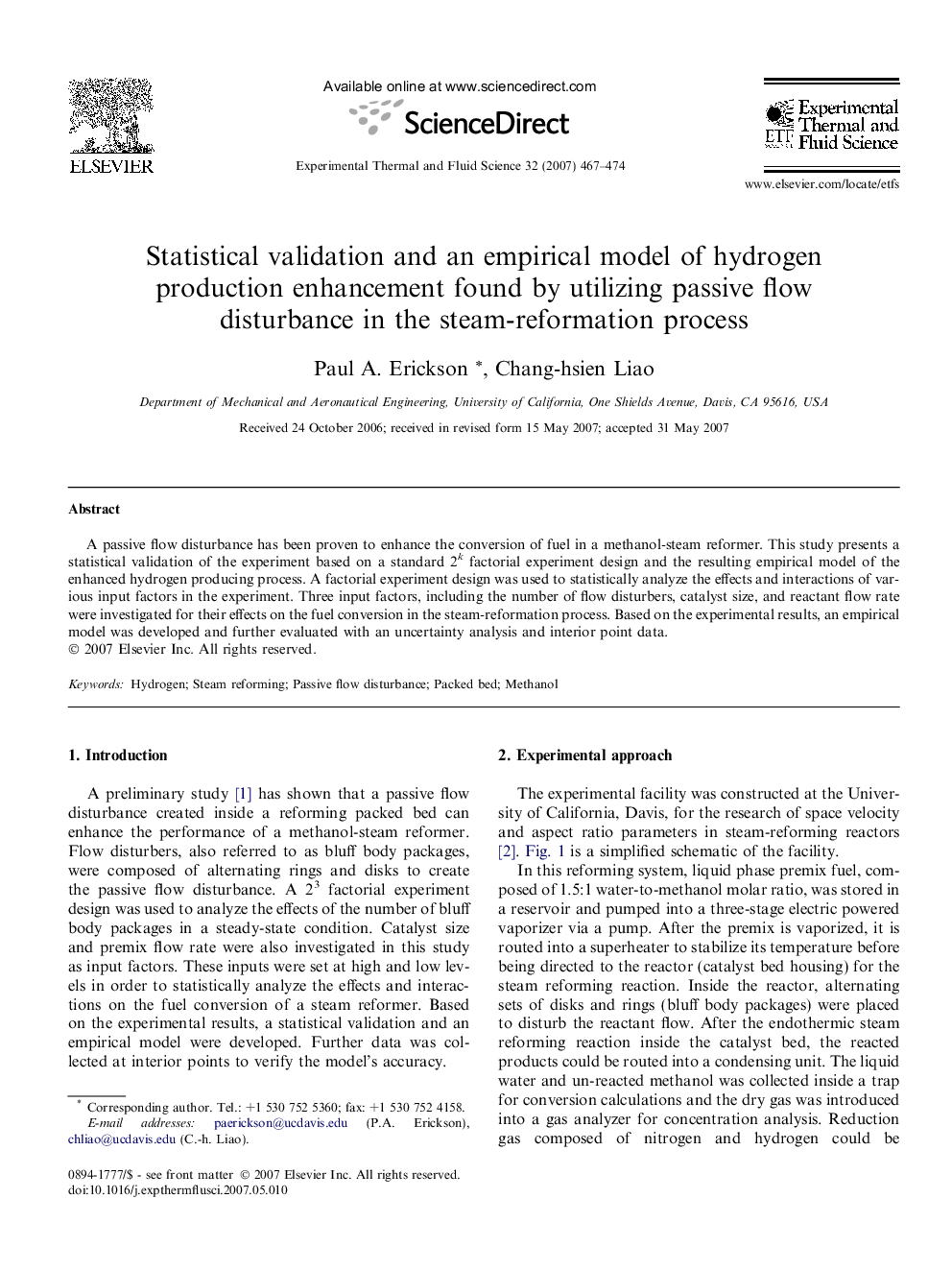| Article ID | Journal | Published Year | Pages | File Type |
|---|---|---|---|---|
| 652398 | Experimental Thermal and Fluid Science | 2007 | 8 Pages |
Abstract
A passive flow disturbance has been proven to enhance the conversion of fuel in a methanol-steam reformer. This study presents a statistical validation of the experiment based on a standard 2k factorial experiment design and the resulting empirical model of the enhanced hydrogen producing process. A factorial experiment design was used to statistically analyze the effects and interactions of various input factors in the experiment. Three input factors, including the number of flow disturbers, catalyst size, and reactant flow rate were investigated for their effects on the fuel conversion in the steam-reformation process. Based on the experimental results, an empirical model was developed and further evaluated with an uncertainty analysis and interior point data.
Related Topics
Physical Sciences and Engineering
Chemical Engineering
Fluid Flow and Transfer Processes
Authors
Paul A. Erickson, Chang-hsien Liao,
